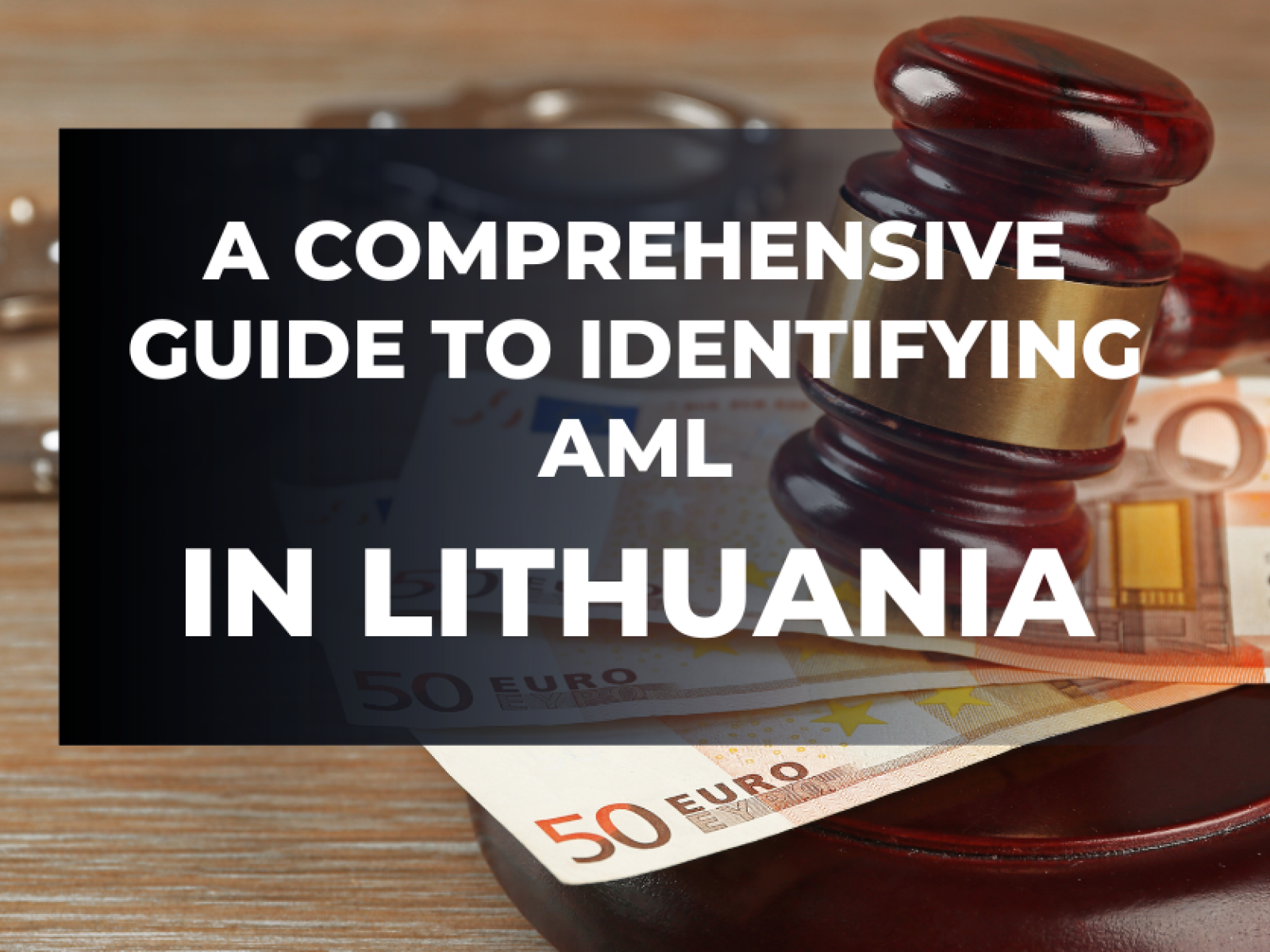Detecting Red Flags: A Comprehensive Guide To Identifying AML In Lithuania
2024 01 10Money laundering is one of the most serious financial crimes, which can lead to the collapse of financial institutions and nationwide crises.
For businesses, the consequences are even worse. Companies that dabble in such illegal practices will lose public trust, their rights to operate, and eventually, their entire corporation.
In this article, we’ll help you figure out what is money laundering and how to protect your business from it.
The state of AML (Anti-Money Laundering) in Lithuania
Lithuania sets the industry benchmark when it comes to anti-money laundering and terrorist financing prevention.
Previously, due to the country’s geographical position near Belarus and Russia, Lithuania is prone to smuggling of goods such as cigarettes, alcohol, and VAT (Value Added Text) embezzlement.
In response, the Bank of Lithuania has decided to form a Center of Excellence in Anti-Money Laundering.
This commendable progress goes to show Lithuania’s commitment to fighting and stopping financial terrorism.
According to Moneyval, Lithuania is deemed to be fully compliant with eight of the forty Financial Action Task (FATF) Recommendations.
Lithuania’s risk-based supervision of financial institutions and legislative measures for cross-border cash and negotiable instruments highlights the country’s robust governance at legislative, regulatory, and institutional levels.
Understanding AML laws in Lithuania
As a measure to strengthen the prosecution of money laundering in Lithuania, the government has enacted foundational AML laws to put an end to illicit financial activities:
Lithuania adopts the best practices and international frameworks for regulating and combating the financing of terrorism (CFT), as seen through the following points:
How to identify red flags of AML
Businesses should look out for warning signs of AML to maintain integrity and operate in a legal domain.
The FATF outlines four main groups that businesses should be vigilant of:
Plenty of businesses assume that money laundering incidents are difficult to catch. However, there are a couple of signs that criminals oftentimes use to launder money:
There are other red flags you should be warned about which you can find in FATF’s guidelines on Money Laundering and Terrorist Financing Vulnerabilities of Legal Professionals.
Conclusion
Money laundering is a huge threat to Lithuania’s economy and businesses should comply with the latest regulations and contribute to the AML movement and keep their operations afloat.
If you’re wondering how you can protect your business from money laundering, contact the nearest AML services in Lithuania.
Our AML experts at Demire Inc. have years of experience in handling even the most complex cases. We collaborate with financial institutions to protect high-risk companies from money laundering.
Mitigate business risks by ensuring compliance, reinforcing effective governance measures, and fostering a culture of ethical conduct and transparency for long-term success.
Frequently asked questions
What is a red Flag for AML?
A red flag in Anti-Money Laundering (AML) is a signal that notifies organizations and law enforcement of any potential money laundering activities. These usually include unusual high-volume transactions from suspicious accounts.
Red flags help firms increase scrutiny over transactions, reduce financial losses from laws, and establish safer and more secure processes.
Which country has the least money laundering?
Eastern European countries such as Lithuania and Estonia are highly resilient toward AML incidents. Lithuania has a relatively low criminality rate, scoring only 3.47 out of 10 for the risk of online financial theft, as reported by Sanction Scanner.
This is because the government is actively fighting against money laundering crimes to protect businesses and the people of Lithuania.
Are bearer shares allowed in Lithuania?
No, bearer shares are not allowed in Lithuania, as businesses must be registered and authorized by law. If you’d like to open the shares of your company to the public, make sure to register your business first.
Which countries have the highest rate of money laundering?
Countries with the highest rate of money laundering include Myanmar, Haiti, Congo, and Chad. Based on the AML index set by the Basel Institute of Governance, all of these countries pose significantly high risks of financial vulnerability, scoring within the range of 8 out of 10.
Therefore, if you’d like to avoid money laundering and run or invest in a company with strong security governance, look for opportunities in Lithuania where the AML risk is low.

